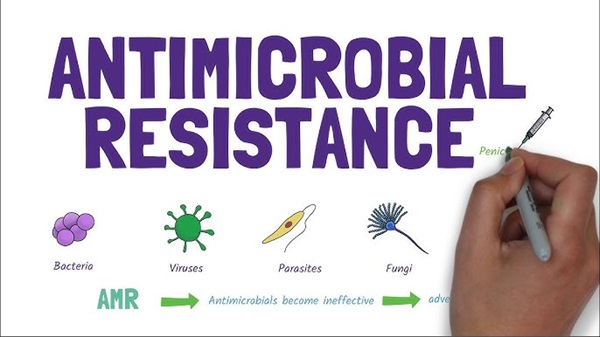
Two groundbreaking Nigerian innovations – Com-WATCH and RxBot – have been named among the eight global finalists for the prestigious Trinity Challenge, an international competition focused on tackling antimicrobial resistance (AMR) using data-driven solutions.
Organisers of the challenge, supported by the Wellcome Trust, the Hong Kong Jockey Club Charities Trust and other global partners, announced the finalists during a webinar held on Tuesday. The Trinity Challenge aims to find scalable innovations that address pressing global health issues, particularly the rising threat of substandard antibiotics and poor stock control systems in low- and middle-income countries (LMICs).
Nigeria’s Com-WATCH and RxBot stood out from a pool of 171 entries submitted from 51 countries. The finalists, which also include projects from Cameroon, Kenya, Malawi, Namibia, the Democratic Republic of Congo and Ethiopia, are now in the running for the £1 million prize fund, which will be split between two winners to be announced on August 20, 2025.
Com-WATCH is a data tool that tracks antibiotic stocks and flags suspected counterfeit drugs through real-time community surveillance. RxBot, on the other hand, is a multilingual WhatsApp-based chatbot that monitors the distribution and quality of antibiotics, especially in vulnerable populations with limited access to formal healthcare services.
Other finalist projects range from AI-powered pharmacy management platforms to paper-based detection kits linked to mobile apps, each aiming to strengthen the integrity of medicine supply chains and fight AMR through innovation.
Speaking on the urgency of the challenge, UK Special Envoy on AMR and chair of the Trinity Challenge, Dame Sally Davies stressed the global health risks posed by unchecked drug resistance.
“We are in the middle of an antibiotic emergency. In many LMICs, people either can’t access effective antibiotics or are exposed to falsified drugs that worsen their conditions. These innovative finalists offer real hope for turning the tide against this crisis,” Davies said.
Antimicrobial resistance already claims millions of lives annually and is projected to cause up to 39 million deaths in the next 25 years if left unaddressed. Nigeria and other LMICs face the greatest burden, with nearly three million deaths per year attributed to treatable bacterial infections.
Health experts in Nigeria have consistently raised concerns about the prevalence of substandard medicines in rural and underserved communities. Such drugs not only fail to cure infections but also contribute significantly to resistance by allowing pathogens to adapt to ineffective treatments.
An Abuja-based AMR researcher, Dr. Chika Eze, hailed the significance of the shortlisted Nigerian tools. “Tools like RxBot give communities the power to verify and report drug quality in real time. This bottom-up approach builds accountability into the system and saves lives,” she said.
The Trinity Challenge was originally established in the aftermath of the COVID-19 pandemic to harness the power of data, technology, and cross-sector collaboration in solving global health challenges. The current edition focuses on AMR, with an emphasis on empowering local innovators in LMICs to lead the charge through context-specific solutions.
The August 20 award ceremony will be hosted virtually, with all eight finalist teams delivering live pitches to a global audience of funders, policymakers and public health stakeholders. The two winning projects will receive funding to expand and deploy their solutions at scale, potentially transforming access to safe and effective antibiotics across Africa and Asia.
As international attention increasingly turns to data-driven healthcare and community-led innovation, Nigeria’s presence among the top contenders reflects its growing capacity to address global health threats through homegrown expertise and digital ingenuity. The Trinity Challenge not only validates these efforts but also shines a spotlight on the potential of African solutions to solve global problems.

